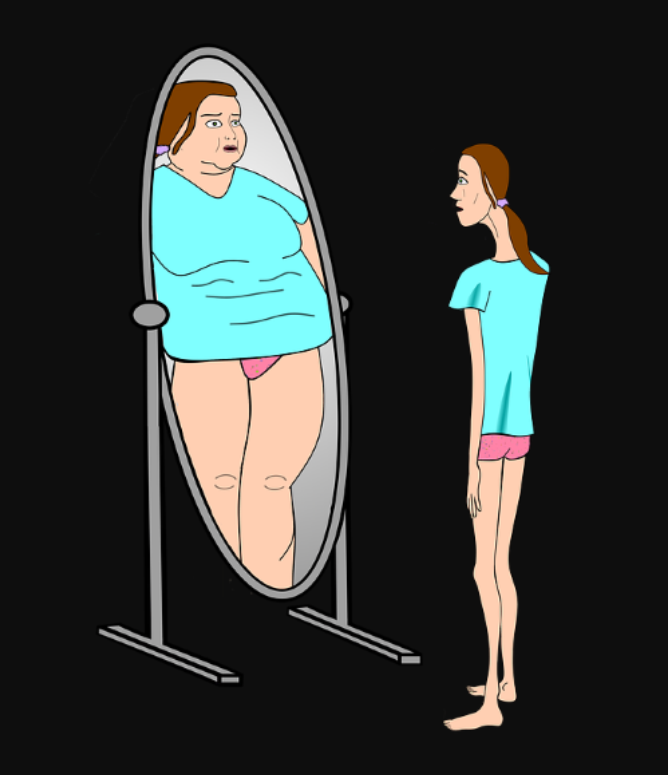Bulimia
March 18, 2020
A topic that’s not very talked about is people with eating disorders. So many people go through them yet very little talk about it, one of the most common eating disorders is bulimia.
Now, the question is…what’s bulimia? Well if you don’t know what it is, it’s an emotional disorder involving distortion of body image and an obsessive desire to lose weight, in which bouts of extreme overeating are followed by depression and self induced vomiting, purging, or fasting. Its most common is girls and women; often beginning in late teens and early adulthood.
How people develop this disorder is unknown. There’s no single cause for bulimia, it’s more of a combination of factors that contribute to developing this disorder. Some of those factors could be from genetics, biology, emotional health, societal expectations and other issues. Just in the U.S alone, there are over 200,000 cases per year.
Here are some of the signs you should look out for if you suspect someone is going through this. The first one is how much they talk about their weight. They may continue to sound displeased and disgusted with how they look and how much they weigh compared to others.
Another sign is that usually when they binge they hide it from people, so if there is an excessive amount of wrappers lying around it could be from binging. There may also be cuts on their hands from scraping them against their teeth after vomiting. These are only a couple of signs to look out for if someone has bulimia.
Bulimia is usually self- diagnosed. The symptoms usually include: eating large amounts of food in a short amount of time, lack of restraint, mood swings, compulsive behavior, self-harm, body weight changes, dental issues, etc. The severity of bulimia usually depends on how much you purge during a week; the most every week for three months straight.
Bulimia is a very serious issue as it can kill you. If bulimia is untreated, it can cause major heart and kidney problems. It can also lead to the use of alcohol/drugs. Another problem is that it can cause people to become suicidal/commit suicide as more people are likely to commit suicide from bulimia than anything else.
Asking senior Michelle Orozco whether she had any ideas on how to help people with bulimia she said, “ Don’t simplify their situation and simply tell them to not do it. It may be hard to not constantly be on them about it but be patient and take your time with them so they can slowly open up to you to get help. Provide support and just be there for them because they may be feeling alone and like no one is there for them since some people wouldn’t talk about it with them.”
There are different treatments that can help those who suffer from bulimia. There are therapy groups people can go to where they are able to talk to people who understand the struggles they are going through. Medication is also an option for people who go through depression, mood swings, and anxiety.
Exercising is another option; it helps improve people’s cardiovascular health. If none of those options work, there are specialists out there that’s main focus deals with eating disorders or the symptoms of one.
Bulimia is not preventable. People can not stop it from happening, but they can help people become healthy, physically and mentally. If you spot someone with the signs please go and help them, whether that’s just talking with them or recommending to go see a specialist. If you are going through this, know that someone is there for you and don’t be afraid to ask for help. For help, advice, or support contact the National Eating Disorder Association at (800) 931-2237.
